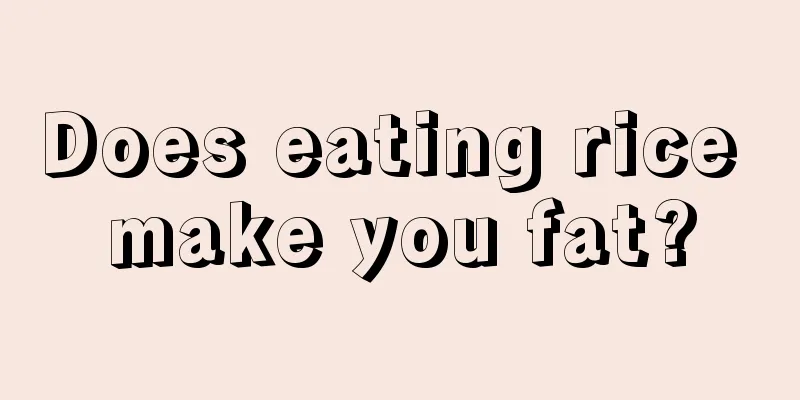What to do if you have diarrhea due to uremia

|
Uremia is a very serious disease. It is a syndrome in which various kidney diseases develop to the late stage and is extremely harmful. Uremia is also prone to various complications, and during the treatment process, it is necessary to deal with various possible problems. Many patients with uremia suffer from diarrhea. So, what should you do if you have diarrhea due to uremia? Let’s take a look below. Uremia is kidney failure and requires hemodialysis treatment to improve the condition and stabilize kidney function. The current symptoms are considered to be caused by indigestion. It is necessary to control diet and eat light and easily digestible food, such as rice porridge, and use Smecta to improve diarrhea. What are the dietary principles for patients with uremia? Uremia patients should ensure adequate protein intake in their diet The reason why the diet for uremia needs to ensure sufficient protein intake: Ensure sufficient protein intake every day. Long-term low-protein diet for uremia renal dialysis patients will lead to malnutrition and make them prone to inflammation, atherosclerosis and other diseases. Therefore, renal dialysis patients need to consume enough protein every day to meet their nutritional needs. Under the premise of ensuring sufficient calories, the uremic diet generally requires dialysis patients to consume about 1.0 gram of protein per kilogram of standard body weight per day. That is, a patient who is 1.55 meters tall and weighs 50 kilograms needs to eat 50 grams of protein every day, more than half of which comes from meat, eggs, milk, and soy. That is, half a pound of staple food + 1 pound of vegetables + 1 egg + 1 bag of milk + 1 ounce of lean meat contain about 50 grams of protein. Uremia diet strictly controls water intake When eating a uremia diet, patients must control their water and salt intake: limiting salt mainly means limiting sodium. The sodium ions in the blood are the main ions that maintain plasma osmotic pressure. If there is too much sodium, water will move from the tissues around the blood vessels to the blood vessels with high osmotic pressure, causing excessive water in the blood vessels, increasing the burden on the heart, and causing high blood pressure and heart failure. In cases of edema, oliguria, hypertension, and inadequate dialysis ultrafiltration, sodium and water intake must be strictly restricted. No more than 3 grams of salt per day. The water here includes all liquids that enter the body, such as food, fruits, beverages, and infusions. The salt intake is accompanied by the water intake. If the salt is controlled ideally and the water is controlled, you generally will not feel the thirst too unbearable. Control the weight gain between each two dialysis sessions to no more than 5%; on the contrary, if the patient feels dizzy or sweats at home and his blood pressure is low at this time, he can drink appropriately. |
<<: Will kidney stones turn into uremia?
>>: Membranous nephropathy stage II and uremia
Recommend
How to remove stains from teeth?
Dirt often appears on people's teeth, especia...
Exercise methods for esophageal cancer
Esophageal cancer patients should do some exercis...
Respiratory acidosis, how to treat, treatment methods
Some poisonings are not caused by one's own f...
What does softened pure water mean
When it comes to softened water, most people may ...
Which hospital is more professional for fibroids
Which hospital is more professional for fibroids?...
What to do if you sprain your knee joint
People may get sprains or encounter accidents whi...
What does corrected vision mean
There are too many places to use our eyes nowaday...
What to do if spots and yellowing appear on face
As people age, yellow spots gradually appear on t...
How to broaden your shoulders
For men, their shoulders are the support of women...
Dietary taboos for patients with cervical cancer
Cervical cancer diet issues still need to be note...
What are the symptoms of AIDS phobia
AIDS phobia is the abbreviation of AIDS phobia. S...
Under what circumstances can lung cancer not be operated on? Lung cancer is not suitable for surgery if it has these symptoms
Patients with multiple groups of fused mediastina...
What harm does argon gas do to the human body
Argon is a rare gas. We rarely come into contact ...
The hazards of pulse therapy device
As an emerging medical product, physiotherapy dev...
My stomach hurts and I have diarrhea
Sometimes, we can judge what disease we have by t...









